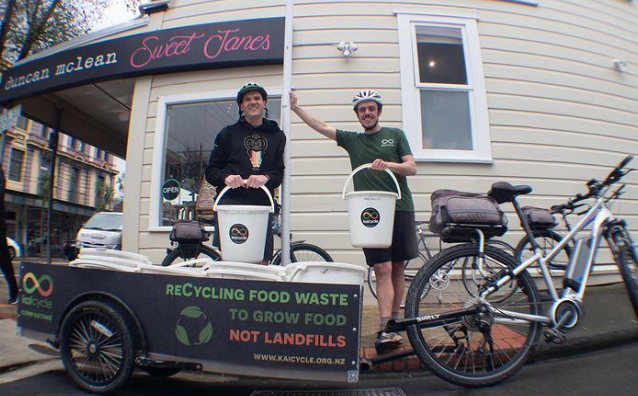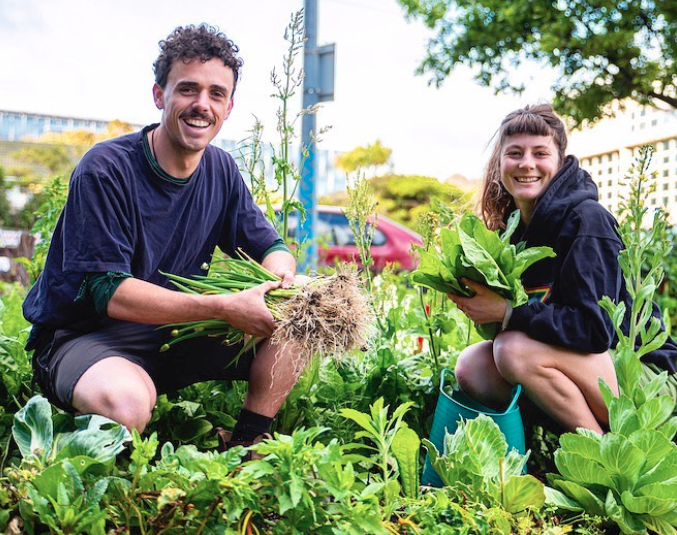Context
In New Zealand in 2018, a study analysed the rubbish bins of 600 households. It found that, on average, New Zealand households threw away 3.15 kg of food per week. However, this figure is down from the 3.17 kg of food waste found in the previous study, conducted by Waste Not Consulting in 2014-2015. Largely as a result of population growth, 157,398 tonnes of easily preventable food waste is being sent to landfill each year.
Bio-waste, made up of food waste and other natural waste, is a resource that is often left untapped. More and more initiatives are being launched to remedy this situation by combating waste and recycling it intelligently.
Kaicycle is one of these initiatives. It has been collecting, sorting and composting food waste in Wellington, the country's capital, for just over 5 years.
The project
Kaicycle provides a small scale organic waste collection service for households and businesses producing up to 60 litres of compostable waste per week. The main aim is to divert food waste from landfill to be used as composted nutrients for local soils. The initiative provides a platform that digitises collection and management points to encourage groups to set up community composting schemes.
Kaicycle offers several packages:
- Weekly collections: new members receive a 20-litre sealable bucket to leave at strategic locations on collection day. For individuals, the buckets can be left outside in a sheltered area, and for offices/businesses in kitchens. Kaicycle teams will come and empty them between 9am and 5pm.
- Weekly collection: When you register, you will receive an access code for the nearest collection point. Members bring their food waste containers once a week. Each composting centre is close enough that there is no need to travel, reducing the carbon footprint of the initiative.
The company's business model is based on a diversified target group (private individuals and companies) who pay for the waste collection and recycling service.

The prices offered, adapted to the target group, are as follows :
- For households: $15 + GST (Goods and Services Tax) per month.
- Household waste collection:
o $30 + GST/month for a maximum of 20 litres collected per week.
o Additional 20 litre bins cost $20+GST/month each. - Commercial collection:
o $60 + GST/month for a maximum of 20 litres collected per week.
o Additional 20 litre buckets cost $40 + GST per month. - Kaicycle offers its household rates to non-profit organisations.
Results
Since 2015, Kaicycle has composted and recycled more than 200,000 litres of food waste.
Little Extra
Kaicycle is also behind an organic and regenerative urban farm in Newtown, which is helping to develop techniques and models for growing food productively in the city, while respecting the health of the soil. The produce grown goes to the volunteers who run the farm and is also donated to community food projects.
In mid-2019, a series of discussions on urban agriculture brought together three urban farms: Kaicycle Farm in Wellington, theOrganic Market Garden in Auckland and Cultivate in Christchurch to form the Farmers' Alliance. This alliance provides mentoring to its members to help small-scale sites maximise their food yields while achieving positive climate outcomes.

This sheet was produced by Magda Salvatore, Let's Food trainee in June 2021.
Source : Wikipedia. Food waste in New-Zealand [online], [Consulted on 23/06/2021]
Last modification : 23 Jan 2024.
Kaicycle
Kaicycle is a New Zealand association that offers a collection and management service for bio-waste produced by households and businesses, by recovering it through composting.